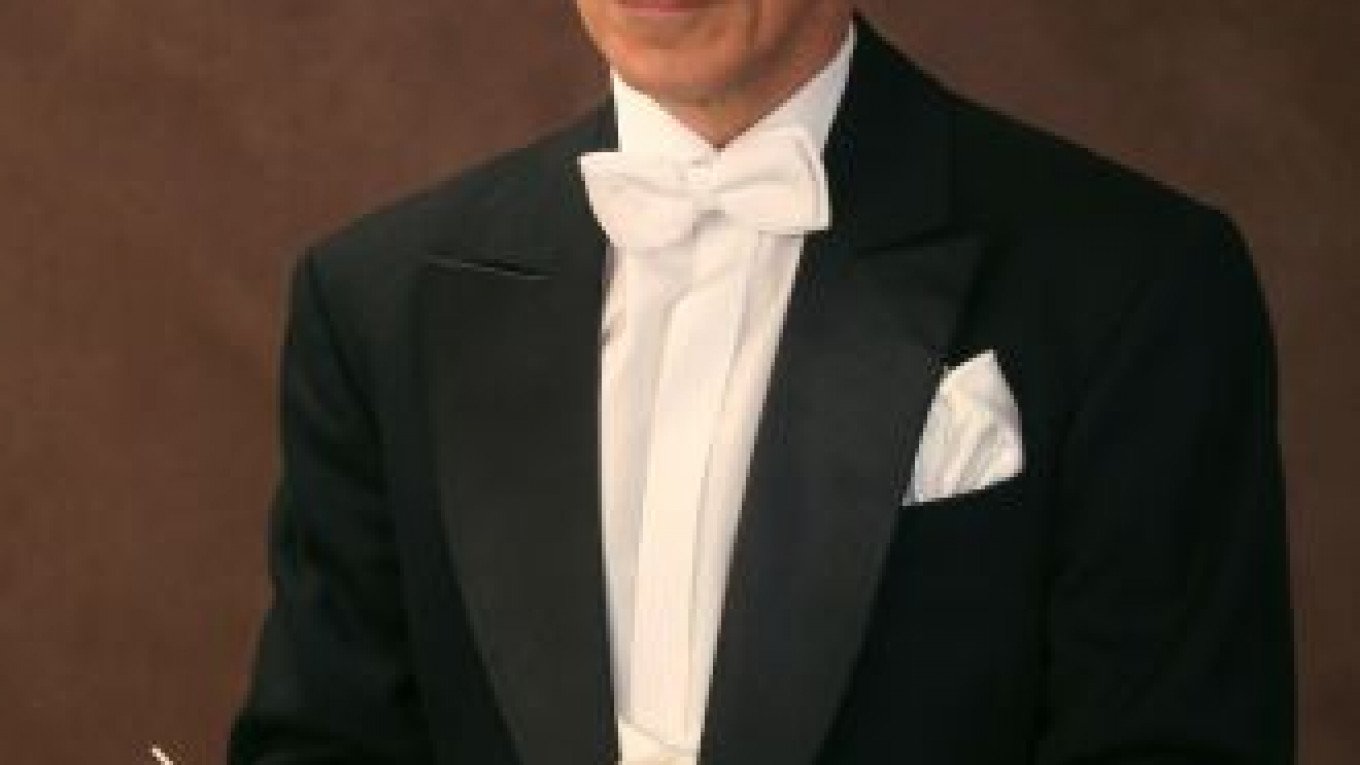Novaya Opera takes an adventurous turn Friday with the premiere, in concert performance, of a pair of one-act operas by Italian and French composers written during and not long after the end of World War I.
Leading off the double bill will be Giacomo Puccini's melodramatic "Il Tabarro" (The Cloak), which made its debut in December 1918 at New York City's Metropolitan Opera House. Joining it will be Jacques Ibert's seldom-performed mythological satire "Persee et Andromede" (Perseus and Andromeda), which first appeared three years later. Occupying the podium on Friday will be Novaya Opera's distinguished English-born chief conductor, Jan Latham-Koenig, who has served since last season.
What connects the two works, according to Latham-Koenig, is France, the native country of Ibert and the setting of Puccini's opera. "Moreover," the conductor said in a conversation earlier this week, "not only does 'Il Tabarro' take place on a barge on the banks of the River Seine in Paris, it is also the most 'French' of Puccini's operas. The composer was very much under the influence of Claude Debussy when he wrote 'Il Tabarro.' And there are many places in it — like the opening bars, which seem to depict a barge bobbing up and down in the water — that clearly bring to mind Debussy's music."
As originally conceived and performed, "Il Tabarro" served as the opening work in a quite diverse trio of one-act operas that also includes the "Suor Angelica," a story of religious redemption that takes place in a convent near Siena during the late 17th century, and the much better-known comic masterpiece "Gianni Schicchi," set in Florence in the year 1299 and derived from Dante's "Divine Comedy." Taken together, the three works bear the title "Il Trittico."
With its libretto based on a play by a rather obscure French writer named Didier Gold, "Il Tabarro" tells the tale of a love triangle and its tragic consequences. Giorgetta, the young wife of aging barge owner Michele, is attracted to the much younger Luigi, one of Michele's stevedores. Luigi mistakes Michele's lighting a pipe for the signal of a rendezvous with Giorgetta. Surprised at finding Michele in her place, he confesses to the barge owner, who promptly kills him and wraps him in a cloak. Giorgetta then arrives on the scene. Michele opens the cloak to reveal the corpse of her dead lover.
Musically, "Il Tabarro" has much to offer in the way of those passionate tunes for which Puccini is justly famous. And the opera is by no means all doom and gloom, with the barge's crew providing some nicely crafted moments of comic relief.
2012 marks the 50th anniversary of the death of Jacques Ibert, a prolific composer, now mostly remembered for his brief Mediterranean musical tour called "Escales" (Ports of Call). Latham-Koenig considers Ibert one of the most unjustly neglected of all French composers, his music combining echoes of Maurice Ravel with what the conductor describes as "cinematic effects." And, indeed, Ibert did write considerable music for films, including, perhaps most notably, the score for Orson Welles' 1948 version of Shakespeare's "Macbeth."
The first of Ibert's six operas and loosely based on Greek mythology, "Persee et Andromede" finds a beautiful princess by the name of Andromeda imprisoned on an island by the Olympian gods and guarded by a monster called Cathos. Cathos falls in love with her, and the pair enjoys a peaceful life together, wiling away the time with games of chess. The hero Perseus suddenly arrives, with much bluster, to free Andromeda. He slays Cathos, but Andromeda finds him vain and shallow, and he soon departs. With that, a handsome prince arises from the corpse of Cathos, and presumably he and Andromeda go on to live happily ever after.
For anyone who wishes to sample Ibert's delicious score, parts of it are available to be heard via the Internet, in a very enthusiastically received recording that Latham-Koenig made of the opera 10 years ago during his tenure as principal conductor of the Strasbourg Opera.
Novaya Opera has on more than one occasion preceded the full-scale staging of an opera with performances in concert form. Perhaps that will also hold true for Friday's double bill. As a partner to "Il Tabarro," the theater already has in its repertoire a rollicking production of "Gianni Schicchi," and the further addition of "Suor Angelica" could provide Moscow audiences with a full-blown "Il Trittico." "Persee et Andromede" also lends itself nicely to staged treatment, according to Latham-Koenig, who led a production several seasons ago in Palermo, Italy.
"Il Tabarro" (Plashch) and "Persee et Andromede" (Persei i Andromeda) play on Friday at 7 p.m. at Novaya Opera, located at 3 Karetny Ryad. Metro Chekhovskaya. Tel. (495) 694-0868. .
A Message from The Moscow Times:
Dear readers,
We are facing unprecedented challenges. Russia's Prosecutor General's Office has designated The Moscow Times as an "undesirable" organization, criminalizing our work and putting our staff at risk of prosecution. This follows our earlier unjust labeling as a "foreign agent."
These actions are direct attempts to silence independent journalism in Russia. The authorities claim our work "discredits the decisions of the Russian leadership." We see things differently: we strive to provide accurate, unbiased reporting on Russia.
We, the journalists of The Moscow Times, refuse to be silenced. But to continue our work, we need your help.
Your support, no matter how small, makes a world of difference. If you can, please support us monthly starting from just $2. It's quick to set up, and every contribution makes a significant impact.
By supporting The Moscow Times, you're defending open, independent journalism in the face of repression. Thank you for standing with us.
Remind me later.






